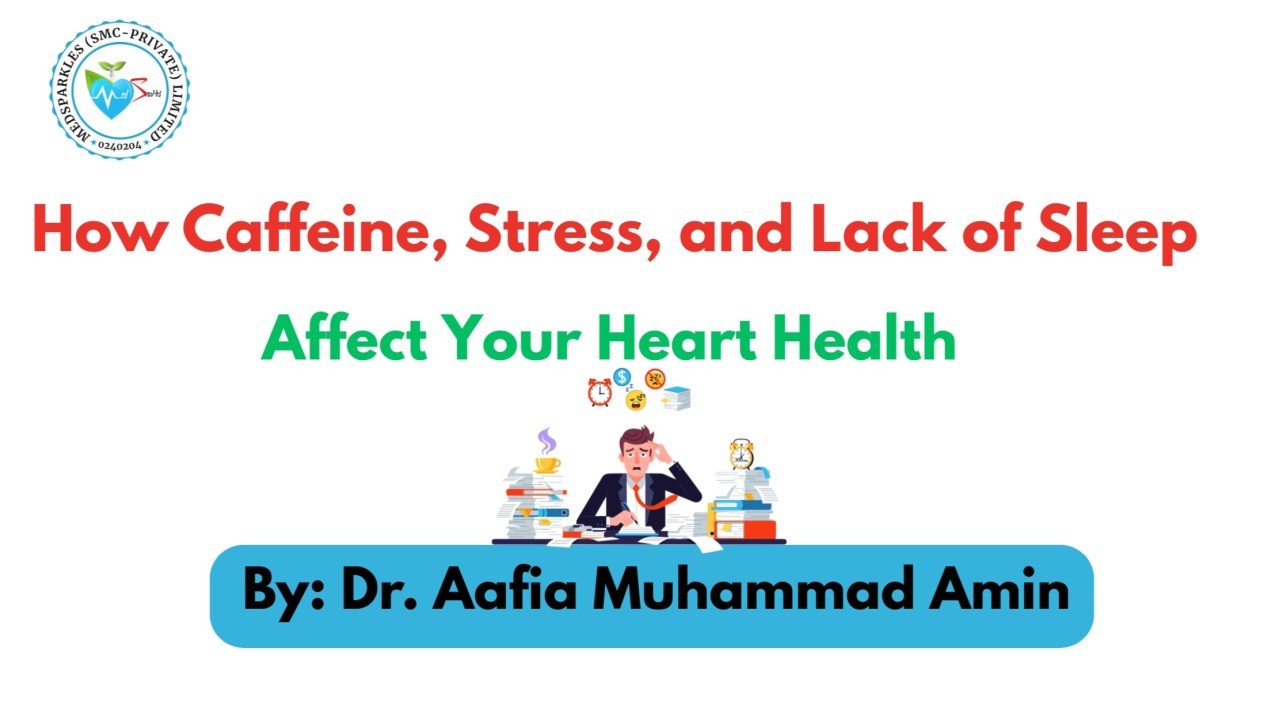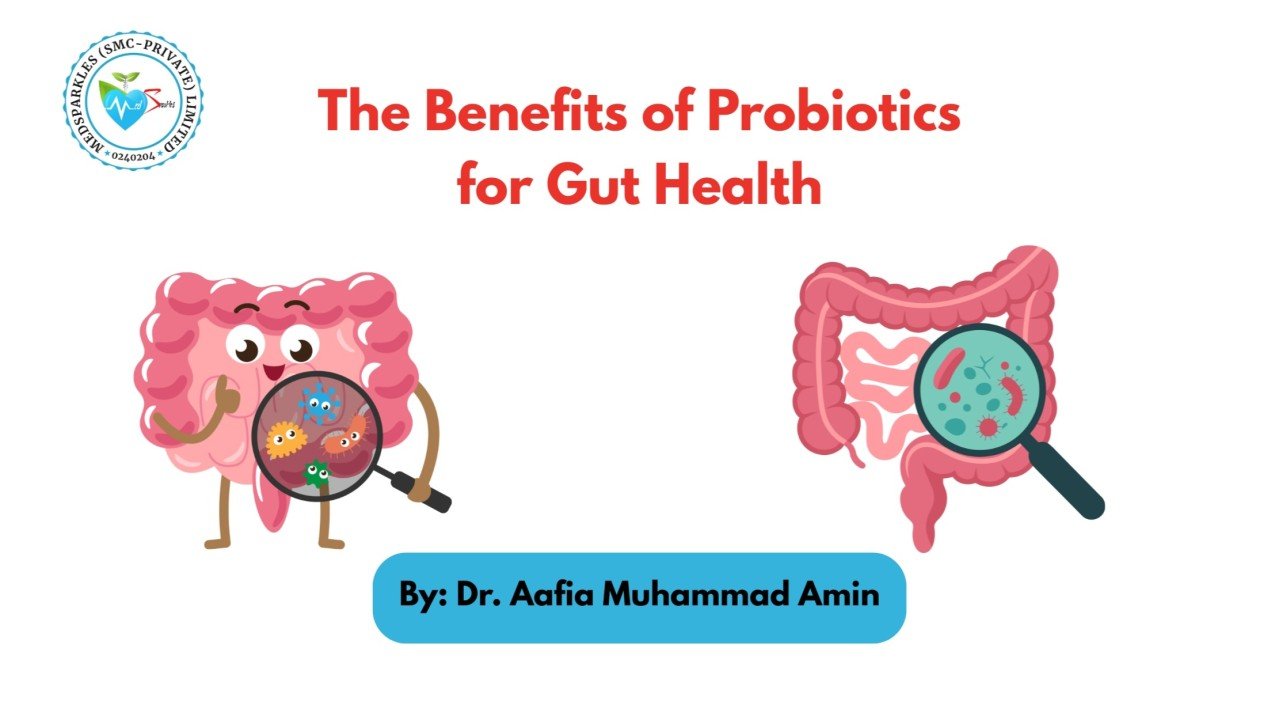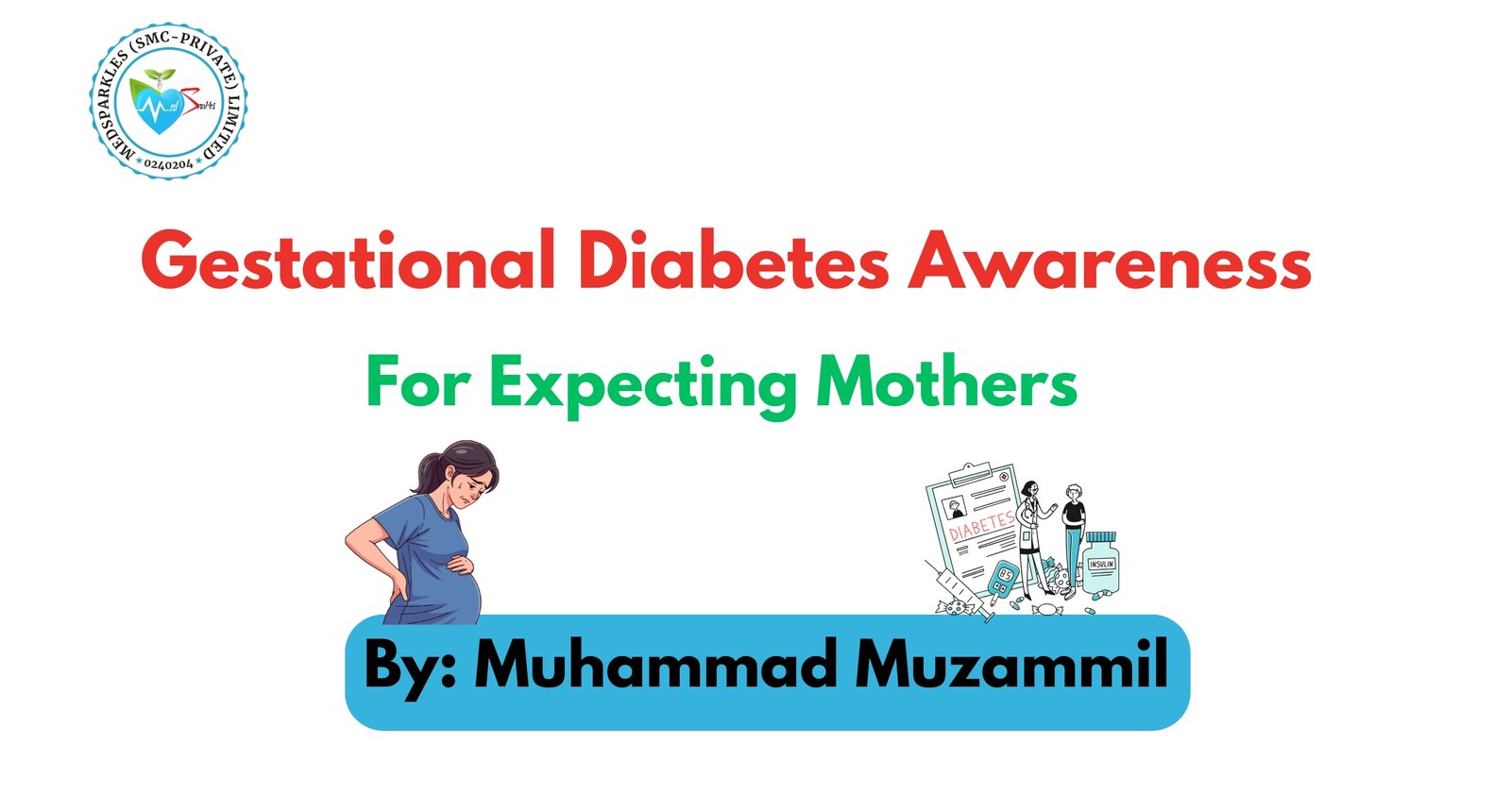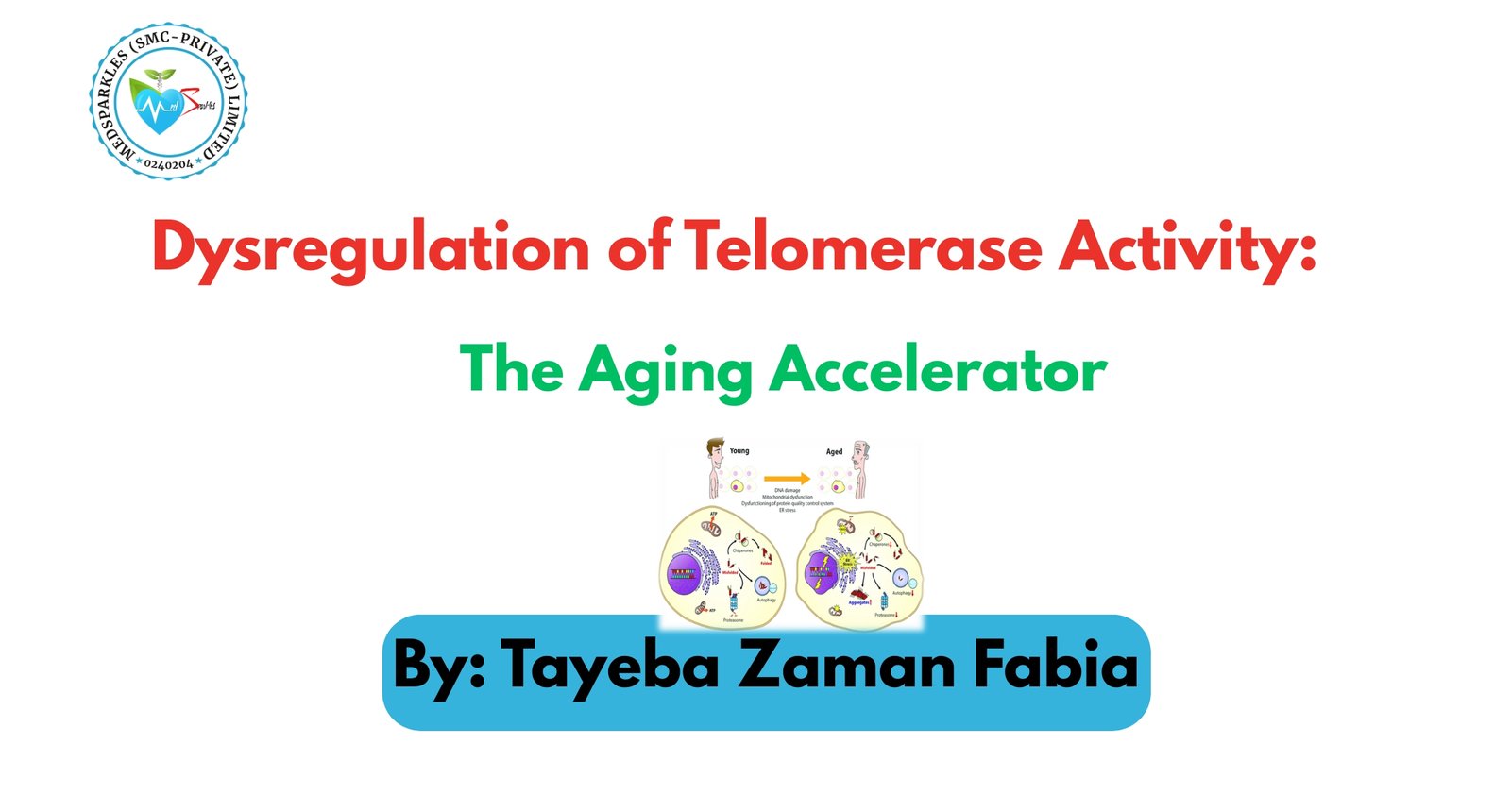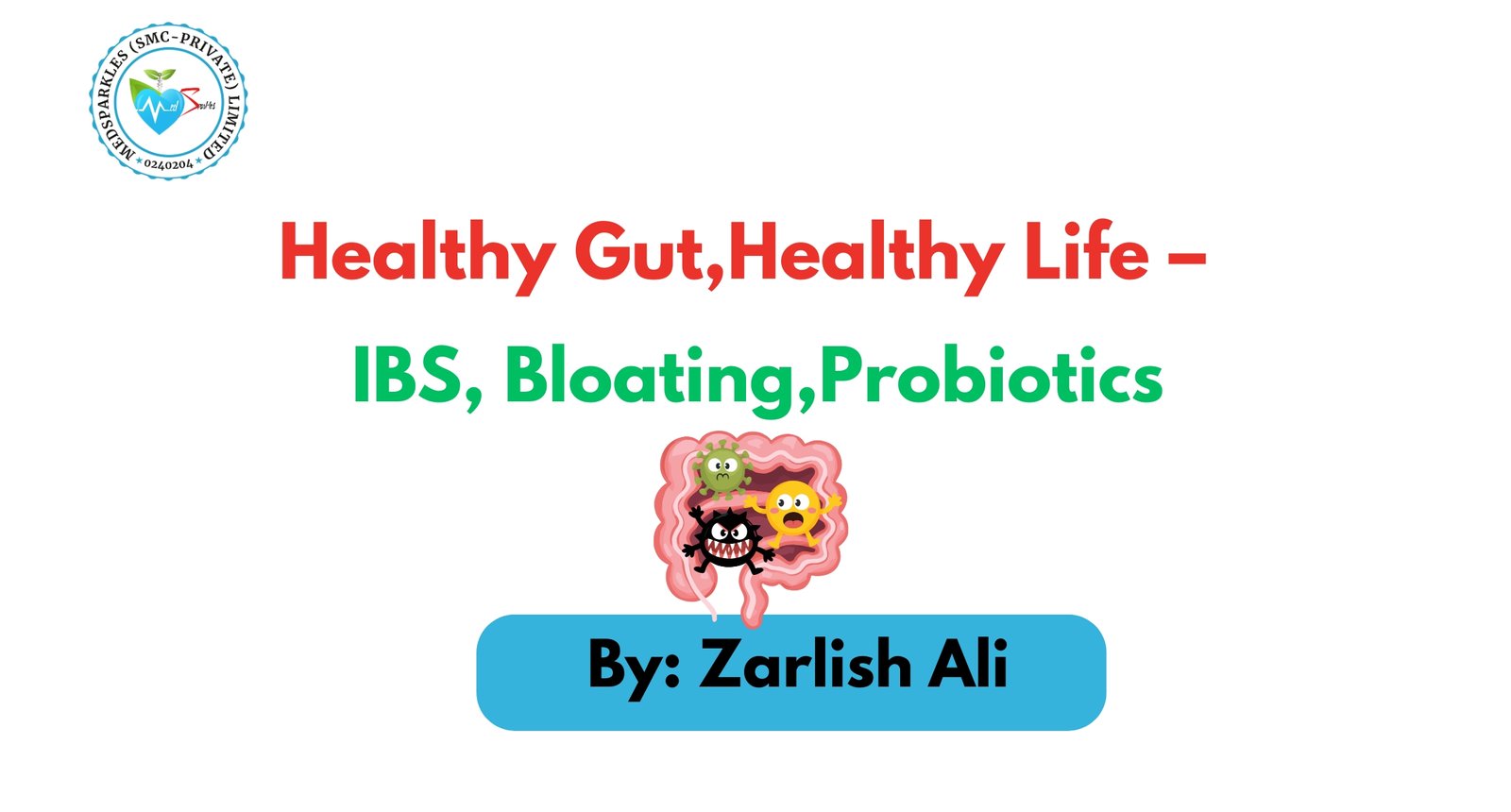
Why Comfort Foods Feel So Good?
We all used to have this, late-night cravings for cookies, ice-creams or something sweet. But what if I tell you that there’s a deeper science secrets behind these urges? Welcome to the captivating anecdote of serotonin, your brain’s “feel-good” chemical, and how it links to your body’s desire for carbohydrates.
The Science of Serotonin: Your Brain’s Mood Manager
Serotonin is a neurotransmitter that helps regulate mood, appetite, sleep, and even pain. Its precursor is tryptophan, an amino acid that needs to cross the blood-brain barrier to do its job.
Here’s the twist: eating carbohydrates triggers insulin, which helps clear out competing amino acids, making it easier for tryptophan to enter the brain—resulting in increased serotonin production.

More carbs = more tryptophan = more serotonin = improved mood (temporarily).
Depression, Anxiety & Carb Cravings: What’s the Link?
A groundbreaking study published in Psychological Medicine (2025) found that individuals with major depressive disorder (MDD) significantly preferred carbohydrate-rich foods over high-protein or fatty options. The more severe their depression and anxiety, the stronger their cravings. Here, Carbohydrate preference may act as a self-soothing behavior to correct low serotonin levels.
Another 2024 study showed that refined carbs (like white bread and sugary snacks) could disrupt serotonin regulation and even contribute to visceral fat buildup, highlighting a cycle between poor mood, poor diet, and poor health.
A study of 1995 showed that carbohydrates increase serotonin in the brain, which helps improve mood, while protein does not have this effect. People often eat carb-rich snacks to feel better, especially during stress, PMS, winter depression, or when quitting smoking. This can lead to weight gain or bulimia in some cases. Dexfenfluramine helps by reducing both appetite and cravings for these foods.
Can Diet Be a Part of Mental Health Treatment?
Absolutely. Understanding how food influences neurotransmitters, opens new doors in treating mood disorders. Our food leads to the activation of multiple chemical neurotransmitters directly or indirectly for multifactorial activity.
How’s your diet should to have better mood?
About 90% of serotonin is produced in the gut, not the brain—so what you eat truly matters
Complex carbs (whole grains, fruits, legumes) support steady serotonin release.
Avoiding refined sugars reduces mood crashes.
Balanced diets with adequate protein, omega-3s, and micronutrients support brain health.
Gut-brain axis therapies (like probiotics) are emerging as future tools for treating depression through diet.
How Carbs Help:
- Eating carbohydrates causes insulin to be released.
- Insulin clears out competing amino acids.
- This allows more tryptophan to enter the brain.
- Result? Increased serotonin production → better mood (temporarily).

The Craving Circuit
Craving carbs isn’t just about habit—it’s about brain wiring. The serotonin-boost from carbs can create a temporary emotional reward, reinforcing the cycle.
This forms a powerful neurological habit loop
tied to serotonin and dopamine pathways. This dopamine-serotonin-reward circuit makes carbs emotionally satisfying. But the relief is short-lived, and repeated cycles can lead to emotional eating, obesity, and even metabolic issues.
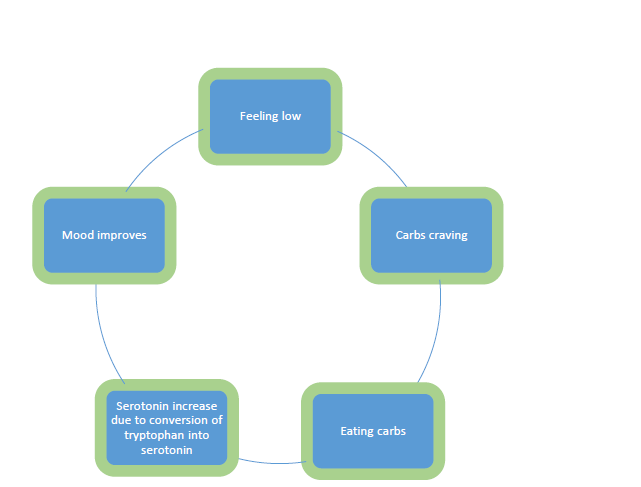
Conclusion.
Carbohydrate cravings are not just about lack of willpower—they’re deeply connected to neurochemistry. In depressed individuals, these cravings may be the body’s attempt to restore balance through food.
As future healthcare professionals, understanding these mechanisms can help you guide patients more empathetically and develop integrative treatment plans that consider both mental and nutritional health.
Key Takeaways:
Serotonin is the neurotransmitter that stabilizes mood and appetite.
Carbohydrates help tryptophan cross into the brain and enhance serotonin.
People with depression craves more for carbohydrates due to serotonin imbalance.
Diet works as therapy as whole foods, complex carbs and hut health can support serotonin naturally.
Frequently Asked Questions (FAQs)
- Why do I crave sweets when I’m sad or stressed?
Your body may be trying to boost serotonin levels to improve mood. Carbohydrates help increase serotonin temporarily, giving a sense of emotional relief. - Are carb cravings a sign of depression?
Not necessarily, but frequent intense cravings, especially for refined carbs, can be more common in people with depression or anxiety. - Can eating more protein increase serotonin instead?
Not directly. While tryptophan is found in protein, consuming high-protein meals can reduce tryptophan’s ability to enter the brain. Carbs help it cross the blood-brain barrier more efficiently. - What are healthy carbs that can support serotonin?
Oats
Brown rice
Quinoa
Fruits (e.g., bananas)
Sweet potatoes
These release glucose slowly and help maintain mood stability. - Can gut health affect serotonin and cravings?
Yes! Most serotonin is made in the gut. A balanced gut microbiome supported by probiotics and fiber-rich foods can influence serotonin production and reduce emotional eating.
References
Martin, H., Bullich, S., Martinat, M., Chataigner, M., Di Miceli, M., Simon, & Fioramonti, X. (2024). Insulin modulates emotional behavior through a serotonin-dependent mechanism. Molecular psychiatry, 29(6), 1610-1619. 2. Thurn, L., Schulz, C., Borgmann, D., Klaus, J., Ellinger, S., Walter, M., & Kroemer, N. B. (2025). Altered food liking in depression is driven by macronutrient composition. Psychological Medicine, 55, e20. doi:10.1017/S0033291724003581 3. Wurtman, R. J., & Wurtman, J. J. (1995). Brain serotonin, carbohydrate‐craving, obesity and depression. Obesity research, 3(S4), 477S-480S.

